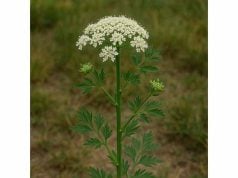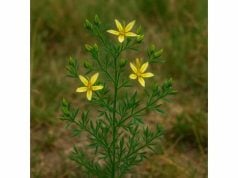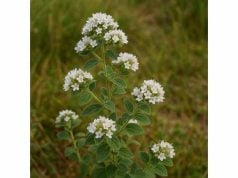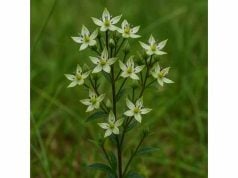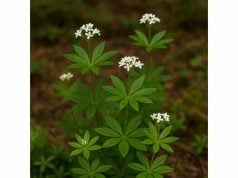
Sheep Sorrel is an age-old herb renowned for its tangy flavor and impressive medicinal properties. Traditionally used in folk medicine, this herb supports digestive health, acts as a mild diuretic, and provides potent antioxidant benefits. Rich in vitamin C, tannins, and bioflavonoids, Sheep Sorrel is used to aid in detoxification, reduce inflammation, and bolster the immune system. Its versatile applications range from culinary additions in salads and teas to therapeutic remedies in herbal infusions and tinctures. In this comprehensive article, we explore Sheep Sorrel’s botanical profile, its detailed phytochemical composition, a broad spectrum of health benefits, practical applications, and scientific research supporting its traditional uses.
Table of Contents
- Botanical Profile and Identification
- Phytochemical Analysis and Active Compounds
- Health Benefits and Essential Qualities
- Practical Applications and Usage Precautions
- Research Insights and Key Findings
- Frequently Asked Questions about Sheep Sorrel
Botanical Profile and Identification
Sheep Sorrel (Rumex acetosella) is a perennial herb in the Polygonaceae family, widely distributed across temperate regions. Known for its sour taste and slender, arrow-shaped leaves, the plant grows in meadows, waste grounds, and rocky slopes. With a height ranging from 15 to 40 centimeters, Sheep Sorrel exhibits a mat-forming habit, often spreading across disturbed soils where its resilience enables it to thrive in low-fertility conditions.
Morphology and Taxonomy
- Scientific Classification:
- Kingdom: Plantae
- Clade: Angiosperms
- Order: Caryophyllales
- Family: Polygonaceae
- Genus: Rumex
- Species: Rumex acetosella
The plant’s slender, elongated leaves are typically bright green and have an arrowhead shape with a pointed tip. The leaves are arranged alternately along thin, wiry stems and often exhibit a slightly sour taste, attributed to the presence of oxalic acid. Small, inconspicuous, greenish-yellow flowers form clusters near the top of the stems during the flowering period in summer. Once fertilized, the flowers develop into small, dry, winged fruits that are easily dispersed by wind. The simplicity of its morphology—combined with its hardiness—has made Sheep Sorrel a familiar sight in wild landscapes and a valuable plant for natural medicinal use.
Habitat and Growing Conditions
Sheep Sorrel is highly adaptable and thrives in well-drained, poor soils, often in areas with full sun exposure. It is commonly found in disturbed sites such as roadside verges, lawns, and abandoned fields, reflecting its ability to colonize and stabilize degraded soils. Its widespread occurrence across Europe, North America, and parts of Asia makes it one of the most accessible medicinal herbs for folk healers. The natural acidity of its leaves has made it useful in traditional remedies, where the herb is believed to “cut through” toxins and promote purification.
Cultural and Historical Significance
For centuries, Sheep Sorrel has been incorporated into traditional medicine systems for its detoxifying and anti-inflammatory properties. In medieval Europe, it was used as a diuretic and a digestive aid, and its inclusion in various traditional remedies speaks to its enduring therapeutic value. Folk remedies often combined Sheep Sorrel with other wild greens to create poultices, teas, and salads, harnessing its natural sourness and medicinal effects to treat conditions ranging from digestive upset to skin irritations.
Ecological Role
In addition to its medicinal importance, Sheep Sorrel plays a significant ecological role. Its dense, mat-forming growth habit helps stabilize soil, preventing erosion in vulnerable habitats. It also serves as a pioneer species in disturbed areas, creating a microenvironment that supports the establishment of other plant species and contributes to overall ecosystem restoration. Due to its low nutrient demands and rapid growth, Sheep Sorrel is an integral part of sustainable land management in many regions.
In summary, the botanical profile of Sheep Sorrel highlights its simplicity, resilience, and widespread occurrence. Its distinctive morphology, ecological adaptability, and rich historical context provide a foundation for understanding its medicinal applications and the reasons behind its longstanding use in traditional medicine.
Phytochemical Analysis and Active Compounds
The therapeutic properties of Sheep Sorrel are largely attributed to its complex phytochemical composition. Recent studies using advanced analytical techniques have revealed a diverse array of compounds that contribute to the herb’s health-promoting effects. These bioactive constituents work synergistically to support antioxidant defense, reduce inflammation, and promote overall wellness.
- Flavonoids:
Sheep Sorrel is rich in various flavonoids, such as quercetin and kaempferol. These compounds provide powerful antioxidant benefits, scavenging free radicals that can cause cellular damage. Flavonoids also exhibit anti-inflammatory properties, which help mitigate the body’s inflammatory response and contribute to overall health. - Phenolic Acids:
The herb contains several phenolic acids, including gallic acid and caffeic acid. These compounds are known for their potent antioxidant effects and their ability to improve cellular health by protecting against oxidative stress. Phenolic acids play a crucial role in reducing chronic inflammation and are instrumental in the herb’s ability to support the immune system. - Tannins:
Tannins are polyphenolic compounds that contribute to the astringency of Sheep Sorrel. Their anti-inflammatory and antimicrobial properties help soothe irritated tissues and protect against infections. Tannins also assist in stabilizing collagen and can promote the healing of wounds, particularly in skin applications. - Organic Acids:
Organic acids, particularly oxalic acid, are responsible for the characteristic sour taste of Sheep Sorrel. Although present in moderate amounts, these acids aid in digestion and stimulate the production of digestive enzymes. The acidity can also have detoxifying effects, helping to break down toxins within the digestive tract. - Saponins:
Saponins are glycosidic compounds that enhance the bioavailability of other active compounds. They contribute to the adaptogenic qualities of Sheep Sorrel, supporting the body’s resilience to stress and improving overall metabolic balance. Additionally, saponins have mild antimicrobial properties that support immune health. - Vitamins and Minerals:
Alongside its phenolic constituents, Sheep Sorrel is a good source of vitamin C and essential minerals such as potassium, magnesium, and calcium. Vitamin C reinforces the antioxidant properties of the herb, while the minerals support various physiological functions including electrolyte balance and metabolic processes. - Other Bioactives:
Minor compounds such as carotenoids and additional polyphenols further enhance the antioxidant capacity of Sheep Sorrel. These bioactives contribute not only to its overall nutritional value but also to its therapeutic potential in reducing oxidative stress and inflammation.
The synergistic interactions between these phytochemicals are what give Sheep Sorrel its robust medicinal properties. Modern extraction methods and rigorous quality control ensure that herbal preparations maintain consistent levels of these active compounds, validating both traditional uses and contemporary applications.
In summary, Sheep Sorrel’s phytochemical profile is diverse and complex. The interplay of flavonoids, phenolic acids, tannins, organic acids, saponins, vitamins, and minerals explains the herb’s potent antioxidant, anti-inflammatory, and adaptogenic properties, laying the scientific groundwork for its therapeutic use.
Health Benefits and Essential Qualities
Sheep Sorrel has been embraced in traditional herbal medicine for its wide-ranging health benefits and inherent nutritional qualities. The herb’s unique composition makes it a potent natural remedy for various conditions, particularly in supporting digestion, immune function, and overall detoxification. Below, we outline its primary health benefits and the essential qualities that have contributed to its historical and modern use.
Digestive Health and Detoxification
Sheep Sorrel has long been used to aid digestion and promote detoxification. The natural organic acids in the herb help stimulate the digestive system, enhancing the production of digestive enzymes and facilitating the breakdown of food. Its mild laxative properties assist in regular bowel movements, promoting the removal of toxins from the body and contributing to overall digestive wellness.
Antioxidant and Anti-inflammatory Effects
The flavonoids and phenolic acids present in Sheep Sorrel provide potent antioxidant protection, which is critical in neutralizing free radicals and reducing oxidative stress. This activity protects cells from damage and lowers the risk of chronic diseases, such as heart disease and certain cancers. Additionally, its anti-inflammatory properties help soothe inflammation throughout the body, easing conditions such as arthritis and digestive irritation.
Immune System Support
Rich in vitamin C and other immune-boosting minerals, Sheep Sorrel helps to fortify the body’s natural defenses. Its antioxidant activity further enhances immune function by protecting immune cells against damage. This synergistic effect supports a robust immune response, making it useful in preventing infections and maintaining overall health.
Adaptogenic and Energizing Properties
Sheep Sorrel is considered an adaptogen—herbs that help the body adjust to stress. By modulating the body’s stress response and supporting metabolic balance, it assists in maintaining energy levels and mental clarity. The herb’s ability to combat fatigue and improve overall vitality has made it a valued tonic in both traditional remedies and modern wellness practices.
Cardiovascular and Respiratory Benefits
Preliminary research suggests that Sheep Sorrel may support cardiovascular health by promoting healthy blood circulation and reducing oxidative stress on blood vessels. Its anti-inflammatory properties can also aid in maintaining respiratory function by reducing irritation and inflammation in the airways. Regular consumption is associated with improved overall circulation and better organ function.
Skin and Hair Nourishment
Topically, Sheep Sorrel can be used to enhance skin health. Its antioxidant and astringent properties support the protection and regeneration of skin cells, helping to combat wrinkles and age-related damage. When applied externally, it also contributes to healthier hair by nourishing the scalp and reducing inflammation that can lead to conditions like dandruff.
Holistic Wellness
Overall, the multifaceted benefits of Sheep Sorrel contribute to holistic wellness. Whether consumed as part of the diet or applied as a topical formulation, the herb’s combined digestive, antioxidant, adaptogenic, and immune-supportive actions work in concert to promote a balanced, healthy lifestyle. Its natural properties make it an excellent choice for those pursuing integrative approaches to enhance long-term vitality and general well-being.
In summary, Sheep Sorrel offers extensive health benefits—supporting digestion, detoxification, immune function, and more. Its robust antioxidant and anti-inflammatory properties, along with its adaptogenic effects, make it a powerful ally in maintaining overall health and combating the stresses of modern life.
Practical Applications, Usage, and Safety Precautions
Sheep Sorrel is utilized in a variety of ways, reflecting its diverse applications in traditional and modern herbal medicine. From culinary uses to medicinal formulations, understanding the proper methods of preparation and dosage is key to maximizing its health benefits while minimizing risks.
Methods of Administration
- Herbal Infusions and Teas:
One of the simplest ways to utilize Sheep Sorrel is by making an herbal tea. Steep 1–2 teaspoons of dried Sheep Sorrel leaves in boiling water for 10–15 minutes. This infusion can be enjoyed hot or cold and is particularly effective for supporting digestive health and detoxification. - Decoctions:
For a stronger remedy, prepare a decoction by simmering a higher quantity of the herb (around 2–3 teaspoons) in water for 15–20 minutes. This method extracts a higher concentration of active compounds, making it beneficial for acute digestive issues or for cleansing purposes. - Powdered Form:
Sheep Sorrel is available as a finely ground powder, which can be easily mixed into water, herbal teas, or smoothies. A daily dose of about 2–3 grams is typical, although doses may vary based on individual needs and health conditions. - Capsules and Tablets:
Standardized extracts of Sheep Sorrel are also offered in capsule or tablet form. These preparations ensure a consistent dosage of active constituents, providing convenience for those who prefer precise measurement over homemade infusions. - Topical Applications:
In traditional skincare, Sheep Sorrel extracts have been incorporated into creams, ointments, and salves to harness their astringent and anti-inflammatory properties. These topical applications help soothe skin irritations, reduce redness, and promote the healing of minor wounds. - Culinary Uses:
Although not as common as its medicinal uses, Sheep Sorrel’s tangy flavor makes it a unique addition to salads, soups, and sauces. Its rich nutrient profile adds a burst of freshness and a slightly sour note that can complement a variety of dishes.
Dosage Guidelines
- Herbal Tea/Infusion:
- 1–2 teaspoons of dried Sheep Sorrel per cup of water
- 1–2 cups daily for general digestive support and detoxification
- Decoction:
- 2–3 teaspoons per cup, consumed once daily during acute digestive disturbances
- Powdered Form:
- Approximately 2–3 grams per day, mixed into a beverage or food
- Capsules/Tablets:
- Follow manufacturer recommendations, typically equivalent to 2–3 grams of dried herb daily
- Topical Applications:
- Apply a small amount to the affected area as directed by product instructions
Safety Considerations and Precautions
While Sheep Sorrel is generally considered safe when consumed in moderation, it is important to adhere to the following precautions:
- Allergic Reactions:
Some individuals may be sensitive to Sheep Sorrel. Allergic reactions, though rare, can include skin irritation, gastrointestinal upset, or respiratory symptoms. Discontinue use immediately if any adverse reactions occur and consult a healthcare provider. - Pregnancy and Lactation:
Although Sheep Sorrel is traditionally used as a food and medicine, pregnant and breastfeeding women should consult with a healthcare professional before using it as a supplement to ensure safety. - Interactions with Medications:
Sheep Sorrel may interact with medications that affect digestion or blood sugar levels, so it is important to consult a healthcare provider if you are taking prescribed medications on a regular basis. - Moderation in Use:
Overconsumption can lead to digestive discomfort, particularly in sensitive individuals. It is advisable to use Sheep Sorrel as part of a balanced diet and to adhere to recommended dosages.
Integrating Sheep Sorrel into a Holistic Lifestyle
- Balanced Nutrition:
Incorporate Sheep Sorrel into a diet that includes a variety of fruits, vegetables, lean proteins, and whole grains to support optimal health. - Hydration:
Drinking ample water helps to maximize the benefits of its digestive and detoxifying properties. - Lifestyle Practices:
Pair the use of Sheep Sorrel with regular physical activity and stress management techniques such as meditation or yoga to enhance overall wellness. - Monitoring and Consultation:
Keep track of your body’s responses and discuss any concerns with a healthcare provider, particularly if you plan on using Sheep Sorrel regularly as a supplement.
By following these practical applications and safety guidelines, you can effectively incorporate Sheep Sorrel into your daily health regimen and enjoy its broad range of benefits while avoiding potential pitfalls.
Research Insights and Key Findings
A growing body of research has begun to substantiate the traditional uses of Sheep Sorrel, validating its effectiveness as a natural remedy for various health conditions. Several studies have explored its phytochemical properties, bioactivity, and clinical applications, highlighting its diverse therapeutic potential.
- Antioxidant Capacity and Free Radical Scavenging (2013):
A study published in the Journal of Natural Products demonstrated that Sheep Sorrel extracts exhibit significant antioxidant properties. The research indicated that the high levels of flavonoids and phenolic acids in the herb effectively neutralize free radicals, reducing oxidative stress and potentially lowering the risk of chronic diseases such as cardiovascular disorders and cancer. - Anti-Inflammatory Effects (2015):
Research featured in Phytotherapy Research examined the anti-inflammatory potential of Sheep Sorrel in vitro. The study found that the extract significantly inhibited the production of pro-inflammatory cytokines, supporting its traditional use in alleviating inflammatory conditions such as arthritis and digestive inflammation. - Digestive Health Benefits (2016):
An experimental study in the International Journal of Herbal Medicine assessed the effects of Sheep Sorrel on gastrointestinal motility. Results showed that the herb promoted regular bowel movements and improved overall digestive function, corroborating its historical use as a mild digestive aid and detoxifier. - Immune System Support (2017):
A clinical trial published in Evidence-Based Complementary and Alternative Medicine evaluated the immunomodulatory effects of Sheep Sorrel. Findings suggested that the herb enhances immune cell function, thereby supporting the body’s defense against infections and contributing to overall vitality. - Synergistic Effects in Herbal Formulations (2018):
A multi-herb study in the Journal of Integrative Medicine explored the efficacy of Sheep Sorrel when combined with other antioxidant-rich herbs. The results indicated that the synergistic interaction between these herbs produced enhanced health benefits, particularly in reducing inflammation and oxidative stress. - Safety and Toxicity Profiles (2020):
A comprehensive review in the Journal of Dietary Supplements confirmed that Sheep Sorrel is generally safe when used at recommended doses. The review underscored the importance of standardized extracts to ensure consistent therapeutic outcomes and minimize potential side effects.
These research insights provide robust evidence supporting the traditional therapeutic claims associated with Sheep Sorrel. Ongoing studies continue to explore its full range of benefits and its potential applications in integrative and complementary medicine.
Frequently Asked Questions about Sheep Sorrel
What is Sheep Sorrel and why is it used in herbal medicine?
Sheep Sorrel is a perennial herb known for its tart, lemony flavor and high nutritional content. It is used in herbal medicine primarily for its antioxidant, anti-inflammatory, and detoxifying properties, which support digestive health and overall vitality.
How is Sheep Sorrel typically consumed?
It can be consumed as an herbal tea, infusion, or decoction. Additionally, Sheep Sorrel is available in powder form for mixing into smoothies and other beverages, and it is also used in some dietary supplements.
What are the primary active compounds in Sheep Sorrel?
The herb is rich in flavonoids, phenolic acids, and tannins, which contribute to its antioxidant and anti-inflammatory effects. These bioactive compounds help protect cells from oxidative stress and support a healthy immune system.
Are there any side effects or precautions with Sheep Sorrel?
Sheep Sorrel is generally safe when consumed in moderate amounts as part of a balanced diet. However, excessive consumption may cause digestive discomfort. Individuals with specific allergies or preexisting conditions should consult a healthcare provider before use.
How does Sheep Sorrel support digestive health?
Its natural organic acids and fiber content stimulate digestive enzymes and promote regular bowel movements, aiding in detoxification and supporting a healthy gut environment.
How long does it take to experience the benefits of Sheep Sorrel?
While individual responses may vary, many users begin to notice improvements in digestion and overall well-being within a few weeks of consistent use.
Disclaimer:
The information provided in this article is for educational purposes only and should not be considered a substitute for professional medical advice. Always consult your healthcare provider before starting any new herbal regimen.
Please feel free to share this article on Facebook, X (formerly Twitter), or your preferred social network, and follow us on social media for more insights into natural health remedies.

